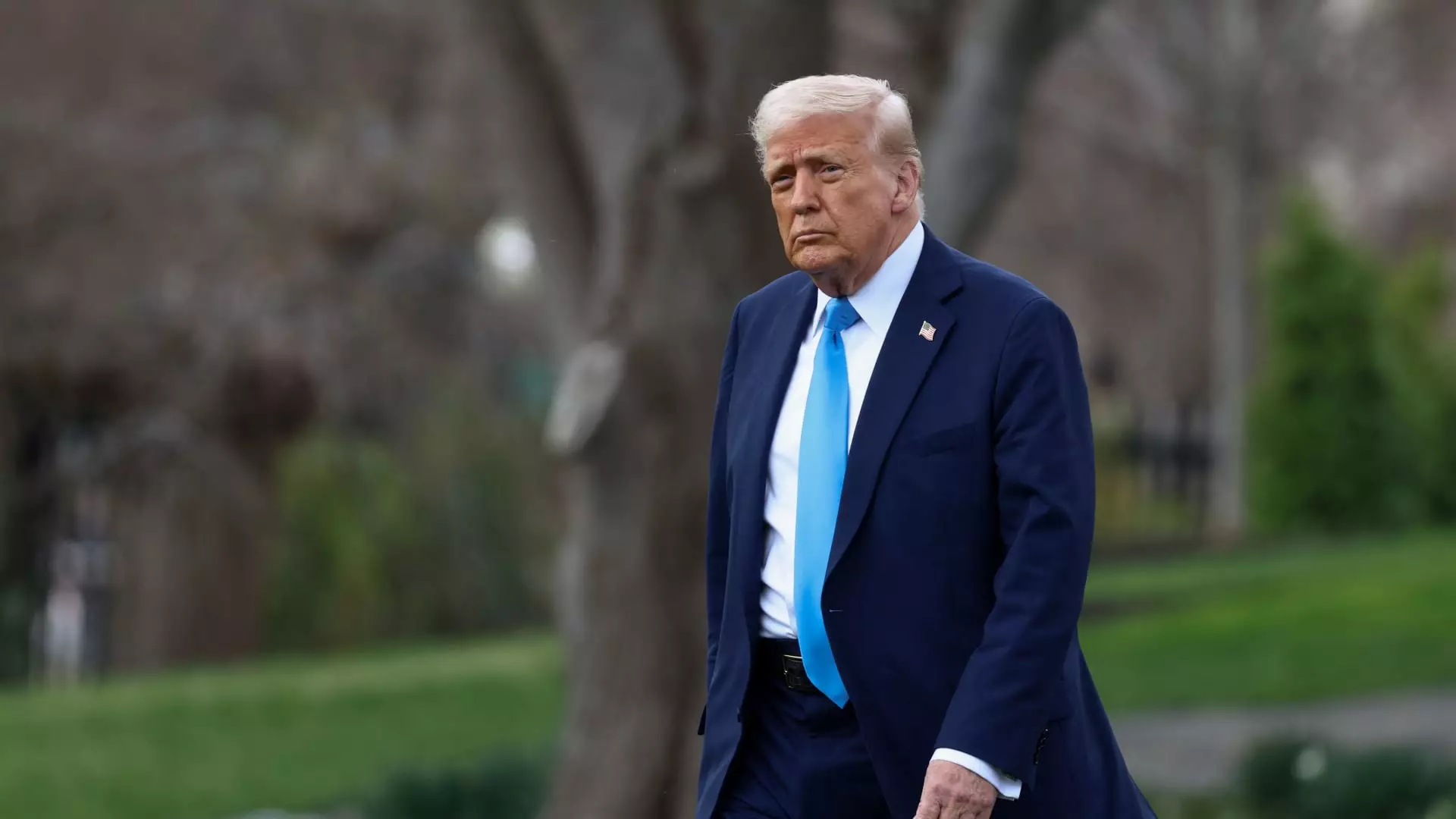In a recent swirl of headlines, former President Donald Trump exhibited the unpredictable temperament that became a hallmark of his administration. His visceral reaction to Russian President Vladimir Putin’s disparagement of Ukrainian President Volodymyr Zelenskyy lays bare an unsettling facet of national leadership. Trump’s vocal frustration—described as “very angry” and “pissed off”—appears not just as an emotional outburst but as a reflection of the haphazard way he administers foreign relations, where impulsive reactions often override strategic planning. Hurling insults and threats may appease a certain segment of his base, but it effectively sabotages diplomatic discourse, compelling one to question whether leading with emotion rather than reason can ever yield constructive outcomes.
Tariff Threats or Empty Promises?
In what seems like a knee-jerk response to Putin’s comments, Trump has threatened to impose significant tariffs on Russian oil with a staggering 25% rate for any businesses operating in the U.S. that engage in oil transactions with Russia. On the surface, this appears as a robust stance against Putin’s malign influence. However, one must dissect whether this tough talk is genuine policy or merely another instance of incendiary rhetoric that lacks a coherent plan. With Russia already facing multiple sanctions due to its actions in Ukraine, imposing further tariffs could create ripples that harm American consumers, raise fuel prices, and strain international relations. While tough measures against aggressive foreign actors can be justified, resorting to impractical solutions veers dangerously close to playing politics for optics rather than effecting real change.
Trump’s Mixed Messages: Allies or Adversaries?
Adding to the chaos is the contradictory relationship Trump embodies with world leaders. While he claims to maintain a “very good relationship” with Putin, he also ostensibly channels his anger towards him. This dichotomy of feelings creates a confusing narrative about whether Trump views Putin as an ally or a foe. His conundrum is further complicated by this provocation-laden foreign policy approach, where demanding concessions while simultaneously acknowledging a cordial relationship dilutes credibility and hampers the U.S.’s negotiating power on the global stage. Moreover, mixed signals can embolden adversaries, eroding any moral high ground the U.S. might traditionally have as a leader in global democracy and stability.
The Ukraine Quagmire: Leadership Under Fire
Trump’s past criticism of Zelenskyy, wherein he deemed the Ukrainian leader “sick” for his handling of the war, brings forth remarkable hypocrisy, given his previous alliances with autocratic leaders. It speaks volumes about his foreign policy acumen—or lack thereof—that he’d vilify a democratically elected leader under siege while cozying up to figures like Putin. This confusing narrative presents an alarming perspective of what is seen as an authoritarian proclivity, especially when contrasted against the backdrop of a war where civilians suffer and democracies are destabilized. Should America commit itself to supporting democracies or just play a waiting game, reacting only when egos are bruised? This inconsistency raises critical questions about U.S. values in foreign relations.
Inevitability of Escalation: Bombs and Tariffs
Trump has also escalated tensions by stating that bombing Iran could follow if negotiations fail—a notion that plays right into historical cycles of violence when diplomacy falters. Such rhetoric threatens to plunge not just Iran but the entire region into chaos. The impending U.S.-Iran nuclear talks present a fragile chance for peace, yet Trump’s willingness to resort to bombing if things don’t align with his desires sends alarming waves through international politics. This pattern of choosing escalation over dialogue would seem to undermine the very peace he boasts of wanting to achieve. If establishing lasting peace is the ultimate goal, one must advocate for nuanced discussions rather than the bombast of threats, realizing that geopolitical complexities cannot be resolved through fear alone.
The Need for a Coherent Foreign Policy Framework
The lack of a cohesive, liberal foreign policy framework is pronounced in Trump’s actions and statements. Centered around diplomacy rather than aggression, contemporary foreign relations should advocate strong alliances, backed by strategic measures that prioritize human welfare. Instead of threatening tariffs and bombings, fostering dialogue and collaboration must take precedence. As history has illustrated, bombast rarely secures peaceful outcomes; earnest negotiation and mutual respect form the bedrock of lasting international relationships. If American leadership is to stand firm in the face of autocracy and aggression, it must embrace a principled stance that values diplomacy over bluster.


Leave a Reply